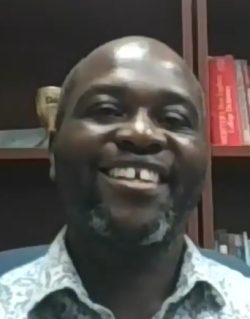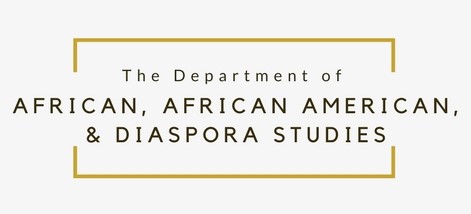
Title:
Teaching Associate ProfessorEducation:
PhD in Linguistics (University of Texas at Arlington, USA); M.A. in Languages and Linguistics (Egerton University, Kenya); Bachelor of Education (Egerton University - Kenya); Certificate in Africa Language Pedagogy (The National African Language Resource Center (NARLC), Indiana University, Bloomington, USA)
Teaching and Research Interests:
Dr. Mwamzandi teaches African linguistics and Swahili language and culture to speakers of other languages. Here are a few important points regarding teaching and learning Swahili as a second language. Swahili is a Bantu language spoken as a lingua franca by the linguistically diverse communities of Kenya, Tanzania, Uganda, Malawi, Burundi, Rwanda, Congo, Mozambique and Somalia. Knowledge of Swahili language and culture is therefore important to anyone traveling to East and Central Africa to do research, conduct business, or provide services to local communities. Further, the growth of Swahili as a language of wider communication in Africa and a fast-growing international language with many second language speakers and learners around the world cannot be overemphasized. Studying Swahili is a gateway to learning the over 400 Bantu languages spoken in Africa because of the close genetic relationship between these languages. There are currently about 50 universities in the US that teach Swahili language and culture. Swahili is also taught in other countries such as Great Britain, Germany, Canada, Sweden, Poland, Mexico, Russia, Japan, China, India to mention just but a few. Further, there is an increasing number of Swahili speaking immigrant population in the Research Triangle that need translation services and social support. Some of our Swahili students and faculty have volunteered to provide service to some of these Swahili speaking immigrant communities. Many people who have visited East Africa will tell you that Swahili speakers are very welcoming and friendly and will appreciate the slightest effort to speak their language.
Current Research:
Dr. Mwamzandi’s main research areas are pragmatics, morpho-syntax, corpus linguistics, and computational linguistics. He has published and presented several linguistic papers on corpus linguistics based on data extracted from corpora such as the Helsinki Corpus of Swahili. A corpus is a large collection of naturally occurring texts (spoken or written) stored electronically based on set criteria. Using corpus analysis software, target data can be extracted faster with more precision and accuracy than when working with printed texts. Dr. Mwamzandi’s latest publications in corpus linguistics are a book chapter entitled "A corpus study of the demonstrative position" and a journal paper entitled "A corpus study of Swahili conditional constructions" published by Studies in African Linguistics. Dr. Mwamzandi is also currently working on counter violent extremism efforts in Africa and how the use of local languages and involvement of the target communities may help in the war against terror.
Publications:
2018. "A corpus study of the Swahili Demonstrative Position." In Kandybowicz, Jason; Travis Major & Harold, Torrence (eds.). African linguistics on the prairie: Selected papers from the 45th Annual Conference on African Linguistics. Language Science Press.
2018. "Racism and identity crisis of a Muslim immigrant in Said Ahmed’s Mhanga nafsi yangu ‘I sacrificed my soul’." Proceedings of the 9th meeting of the Southeast African Languages and Literatures Forum (SEALLF), September 30 - October 1 2017 (Accepted)
2017. "The role of Swahili language in the Kenya government counter terrorism efforts." Proceedings of the 8th meeting of the Southeast African Languages and Literatures Forum (SEALLF), September 29 – 30, 2076 (Forthcoming)
2017. "A Corpus Study of Swahili Conditional Constructions." Studies in African Linguistics, Volume 46, 2017.
2012. "The role of givenness in Swahili reciprocals." Studies in the Linguistic Sciences: Illinois Working Papers 2012.

